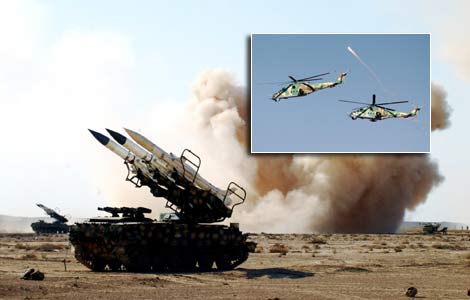Russian satellite fails to reach planned orbit
Updated: 2011-12-24 07:44
(Xinhua)
|
|||||||||||
MOSCOW - The newly-launched Russian communications satellite "Meridian" failed to reach its planned orbit and crashed in the Siberia region on Friday, according to the Russian Aerospace Forces.
The Meridian dual-purpose satellite was launched by a Russian Soyuz-2.1b rocket at 16:08 Moscow time (1208 GMT) from the Plesetsk space center in northern Russia on Friday.
Spokesman of the Forces Col. Alexei Zolotukhin told reporters that a malfunction occurred at the third stage of the rocket some 7 minutes after the launch.
"An accident occurred at the 421st second of the Meridian satellite launch from the Plesetsk space center in the off-normal work of the propulsion unit of the third stage of the launch vehicle," Zolotukhin said.
"The satellite failed to reach a low orbit," he said, adding that an investigation into the accident has started.
After the crash, Russia's Federal Space Agency Roscosmos head Vladimir Popovkin promised to probe into the accident and hinted to replace several heads of space plants.
"The space sector is suffering a crisis. We must resolve this situation and give way to the youth....Perhaps it's time for reshuffle," Popovkin said.
The official also slashed Russia's weak engine building industry, saying the cause of the Meridian crash "is the engine problem."
Russia's Interfax news agency quoted a source in the Russian Defense Ministry as saying that the Meridian satellite had already fallen to the ground near Russia's Siberian city of Novosibirsk.
"According to preliminary information, there are no casualties or destruction," the source said, adding that search operations have been underway.
The Meridian-series communications satellites are designed to provide communications between vessels, airplanes and coastal stations on the ground.
The Soyuz-2.1b is an upgraded version of Russia's Soyuz rocket, which has been a workhorse of Russia's manned and unmanned space programs since the 1960s.
Since the beginning of the year, Russia has suffered a string of failures in space industry.
On February 1, Russia's Rokot carrier rocket failed to send a military satellite to the designed orbit.
On August 18, a Proton-M rocket carrying an high-power Express- AM4 communications satellite failed to reach the planned orbit. Only one week later, a Progress M-12M cargo ship also failed to reach the International Space Station due to a rocket malfunction.
Russia's Phobos-Grunt mission to Mars that carries China's micro-satellite Yinghuo-1 was launched on November 9 but also failed to reach the intended orbit.
Hot Topics
HIV/AIDS, Egypt protest, Thanksgiving, climate change, global economic recovery, home prices, high-speed railways, school bus safety, Libya situation, Weekly photos
Editor's Picks

|

|

|

|

|

|







